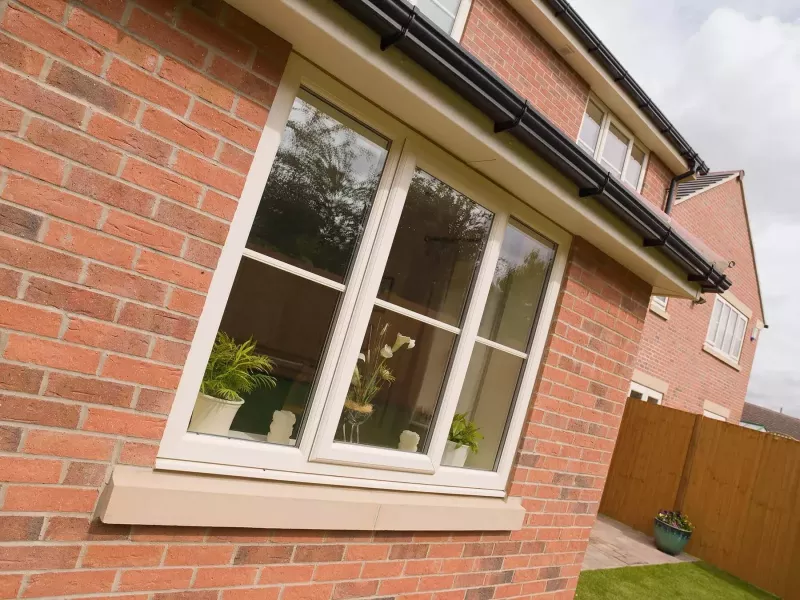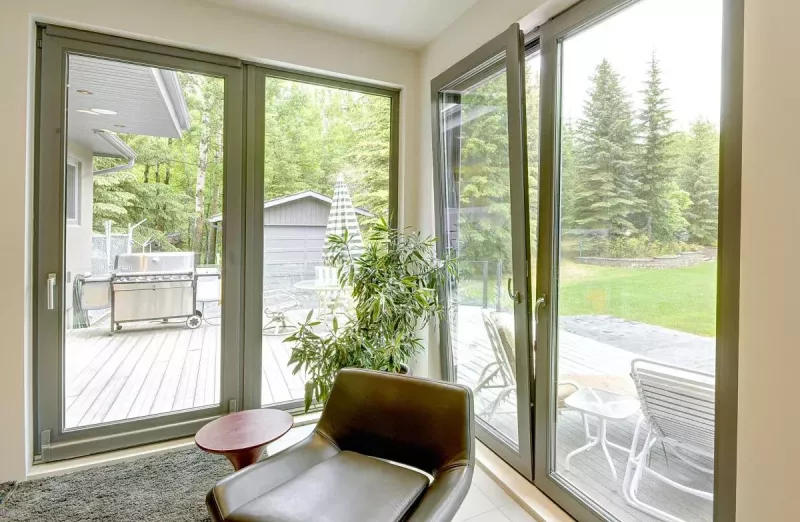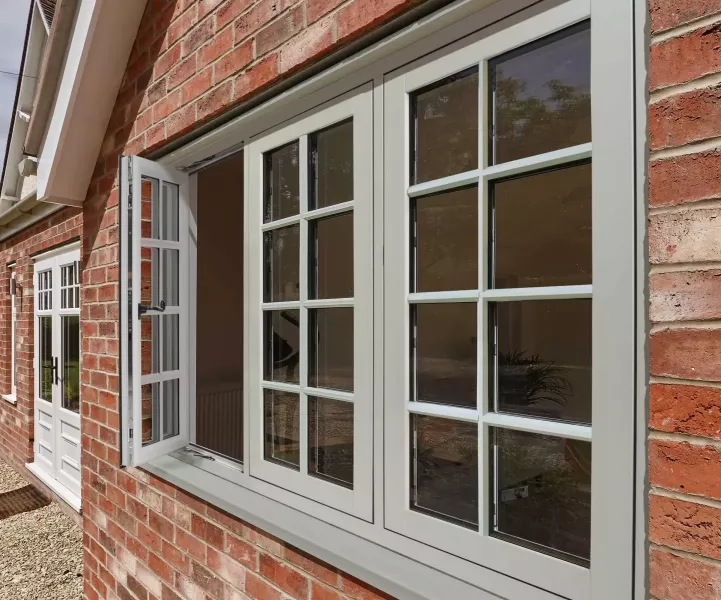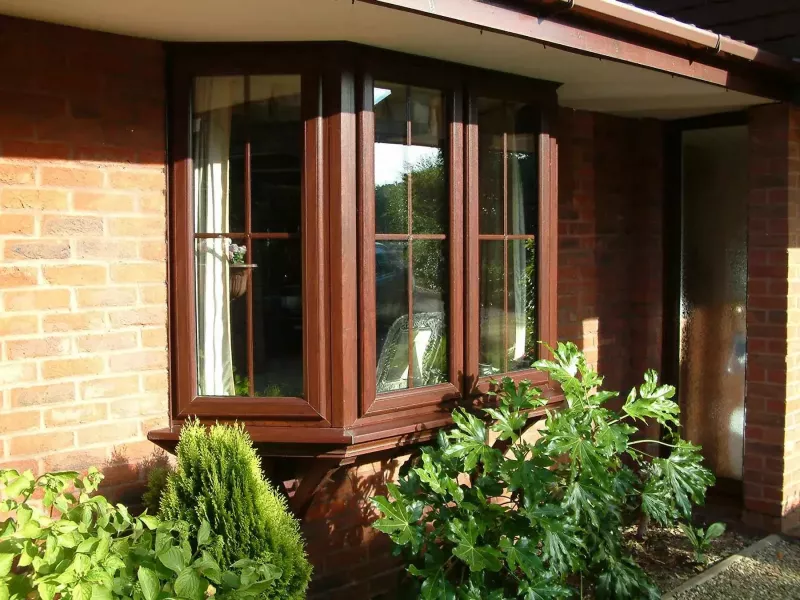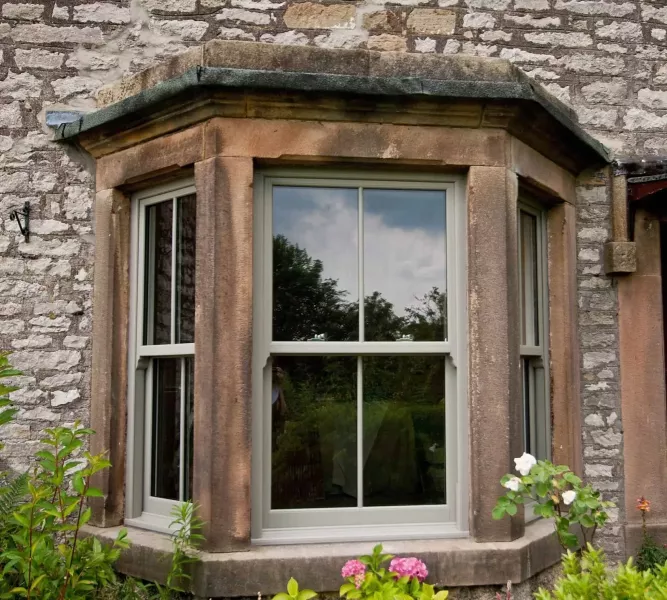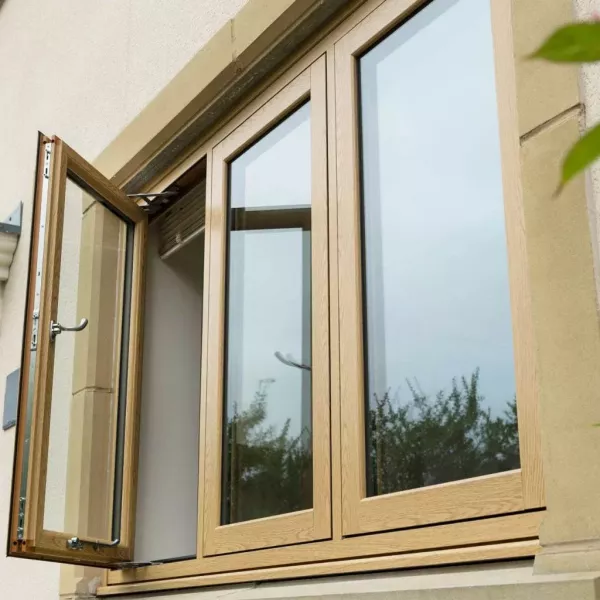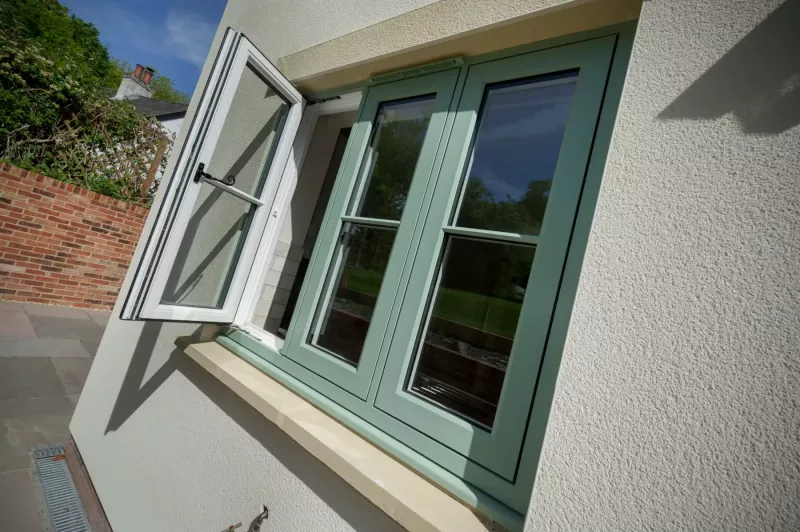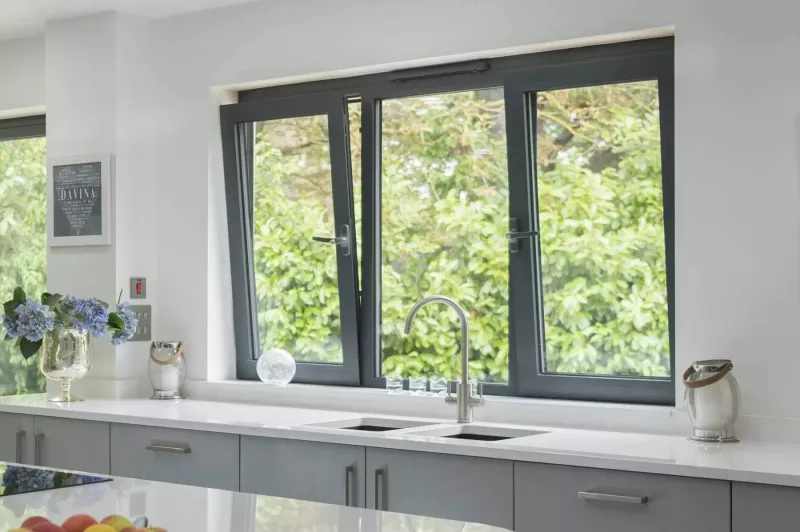double glazed windows
Generate a warmer, less noisy, and more secure home with double glazed windows…
Double Glazed Windows by Safe and Sound Enhanced Security and Insulation
Double glazed windows, also known as insulated glazing units (IGUs), consist of two panes of glass separated by an insulating gas-filled space. This design serves the primary purpose of enhancing energy efficiency by reducing heat transfer between the interior and exterior environments.
Double Glazed windows are made up of a frame and a glazed unit with two panes of glass placed between an argon gas insulating layer. The main advantage of double glazing is thermal insulation, which increases a room’s energy efficiency by preventing cold air from entering and keeping heat in. Safe and sound windows double glazed units have a unit depth of 28mm; the deeper the unit, the more insulating the unit is made of glass.
Different kinds of glass can be used to make windows with a double glazed unit that are tailored to meet specific needs. Our selection of windows includes security windows, noise-reducing windows, energy-efficient windows, and windows with sun control glazing.
Safe and sound Double Glazing comes in a variety of styles that fit well with modern, classic, and historic homes alike. Select from aluminum windows, hardwood windows, and uPVC double glazing. We also provide a range of styles, such as the well-liked casement, Tilt & Turn, Bay and Bow, and sash windows.
Benefits of Double Glazing
- Improved Thermal Insulation:The gas layer between the glass panes acts as an effective insulator, minimizing heat loss during colder months and preventing excessive heat gain in warmer seasons. This results in reduced energy consumption for heating and cooling, leading to cost savings on utility bills.
- Noise Reduction:The additional pane of glass and the insulating gas layer help to dampen external noise, creating a quieter and more peaceful indoor environment.
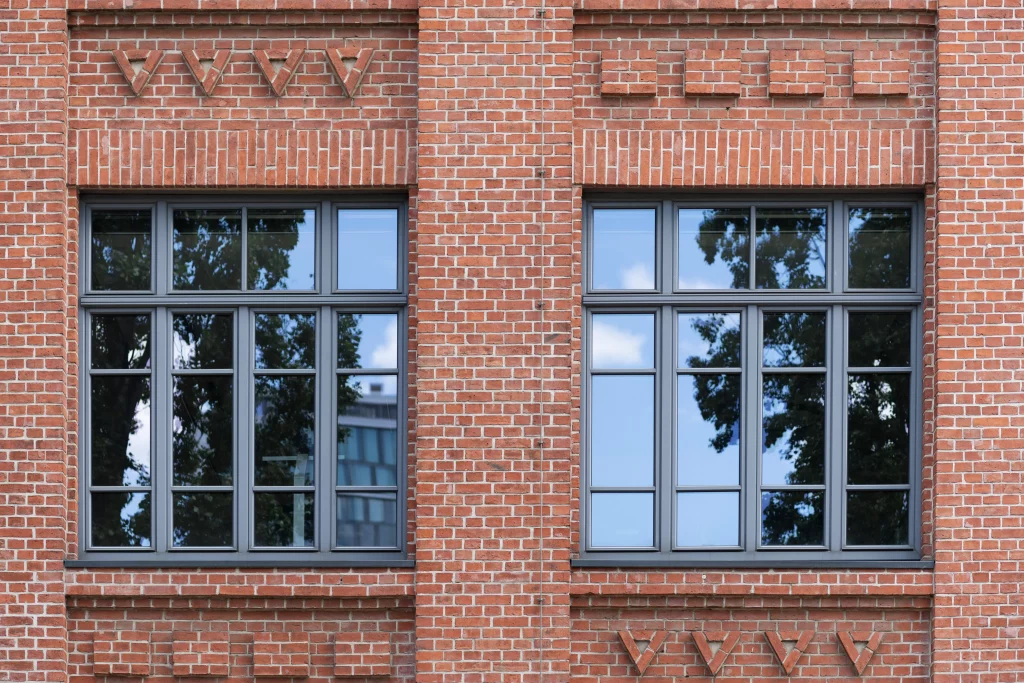

- Condensation Prevention: The insulating properties of double glazed windows reduce the likelihood of condensation forming on the interior glass surface, thereby minimizing the risk of mold growth and potential damage to window frames.
- Enhanced Security: Double glazed windows are more challenging to break compared to single-pane windows, providing an additional layer of security for your home.
- UV Protection: Many double glazed windows feature a low-emissivity (low-E) coating that reflects ultraviolet (UV) rays, helping to protect your furnishings and interior decor from fading caused by prolonged exposure to sunlight.
Different Glass Types for Different Needs
View the safe and sound range of specialist glass and glazed units.
Choosing the Right Double Glazed Windows
We are providing industry-leading U-values, exceptional energy efficiency, and a push towards sustainability with our new uPVC windows, which haven’t been readily available in the UK beforehand.
- Windows Frames
- Windows Styles
- Components
Types of Frames (uPVC, Wood, Aluminium)
When choosing double glazed windows, one of the primary considerations is the frame material. Each option – uPVC, wood, and aluminium – offers distinct advantages and characteristics that cater to different preferences and requirements.
- uPVC Frames:
- Excellent thermal and sound insulation properties
- Low maintenance, resistant to weathering, chemical rotting, and corrosion
- Durable, with an estimated lifespan of over 40 years
- Cost-effective and energy-efficient option
- Allow for thicker double-glazed units, achieving high insulation against temperature and noise
- Wood Frames:
- Classic and timeless appeal, adding warmth and character
- Renewable and environmentally friendly resource
- Excellent thermal insulation properties
- Require regular maintenance to prevent fading, warping, and rotting
- Aluminium Frames:
- Sleek and modern aesthetic, suitable for contemporary designs
- Lightweight yet strong and durable
- Uninsulated aluminium frames can conduct heat, leading to poor energy efficiency
- Thermally broken aluminium frames with polyamide thermal breaks improve insulation
Window Styles (Casement, Tilt and Turn, Bay, Sash)
In addition to the frame material, the style of the window plays a crucial role in both aesthetics and functionality. safe and sound Windows offers a range of popular window styles to suit various preferences and architectural designs.
- Casement Windows:
- Outward-opening design, versatile for modern and traditional homes
- Available in uPVC, timber, or aluminium frames
- Thermally efficient, reducing heat transfer
- Tilt and Turn Windows:
- Flexible design, allowing the window to tilt inwards or open fully
- Ideal for high-rise buildings, providing ventilation and easy cleaning access
- Suitable for uPVC or aluminium frames
- Bay Windows:
- Arrangement of window panes in a square or polygonal shape
- Protrude from the main wall, adding character and additional living space
- Available in uPVC, aluminium, or timber frames
- Sash Windows:
- Vertical sliding design, commonly found in period homes
- Elegant and traditional appearance
- Offered in timber or uPVC frames, delivering exceptional thermal performance and security
- Glass Panes: Double glazed windows typically feature two panes of glass, each with a thickness ranging from 4 mm to 6 mm.
- Gas Layer: The space between the glass panes is filled with an inert gas, such as argon, krypton, or xenon. These gases have a higher density than air, providing better insulation properties.
- Spacer Bar: A spacer bar, typically made of aluminum or stainless steel, separates the glass panes and maintains the gas-filled cavity. The spacer bar may also contain a desiccant material to absorb any residual moisture within the unit.
- Sealant: A durable sealant is applied around the perimeter of the glass panes to create an airtight seal, preventing the insulating gas from escaping and moisture from entering the unit.
- Low-E Coating: Many modern double glazed windows incorporate a low-emissivity (low-E) coating, which reflects infrared radiation, further enhancing energy efficiency and UV protection.
Double glazed windows are carefully manufactured to ensure optimal performance and longevity. By understanding their construction and benefits, homeowners can make informed decisions when considering this energy-efficient solution for their homes.
Energy Efficiency and Insulation Factors
Energy efficiency is a crucial consideration when selecting double glazed windows. Several factors contribute to the overall insulation and thermal performance of the windows:
- Double or Triple Glazing: Double or triple-paned windows with an insulating gas-filled cavity provide superior insulation compared to single-pane windows.
- Low-Emissivity (Low-E) Coatings: These coatings reflect infrared radiation, enhancing energy efficiency and UV protection.
- Airtight Seals: Properly sealed units prevent air leakage and maintain the insulating gas layer, ensuring optimal thermal performance.
- Frame Material and Construction: Thermally broken or insulated frames, such as uPVC or thermally broken aluminium, minimize heat transfer through the frame.
By considering the frame material, window style, glazing options, and insulation factors, homeowners can choose double glazed windows that align with their aesthetic preferences while maximizing energy efficiency and comfort within their living spaces.
Here are some frequently asked
Yes, double glazing can significantly diminish noise levels inside a home by up to 31 decibels. This reduction is achieved because the panes in double glazed windows do not directly contact each other, allowing them to dampen sound waves. However, it’s important to note that while they greatly reduce noise, they do not completely eliminate it.
Double glazing helps to reduce condensation through insulation where the glass is not as cold as single glazed. Double glazing can’t eliminate condensation entirely, so following a combined approach of windows, ventilation and reduced moisture is the only way to completely get rid of condensation.
In general, double glazed windows can last anywhere from 20 to 30 years. This timeframe can be even longer, exceeding 30 years, if the windows are installed in a sheltered location and experience mild weather conditions. However, harsh weather exposure can reduce their lifespan to around 20 years.
For optimal noise reduction, secondary glazing is the best option. It is especially beneficial for listed buildings, where it not only enhances energy efficiency but also significantly reduces noise levels without compromising the building’s historical integrity.
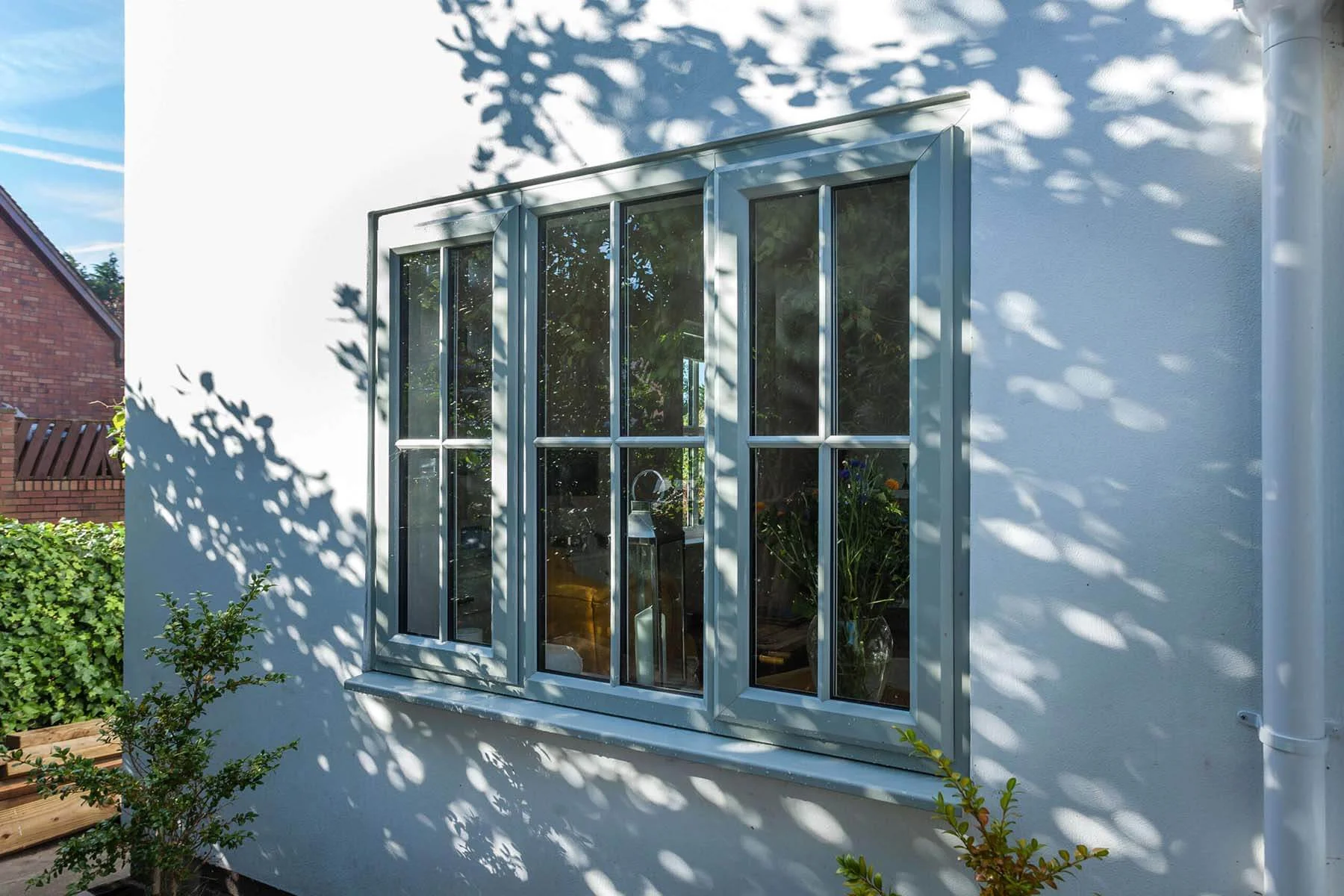
Casement Windows
Casement window from Safe and Sound Windows are flexible, easy to customize, and provide a perfect look.
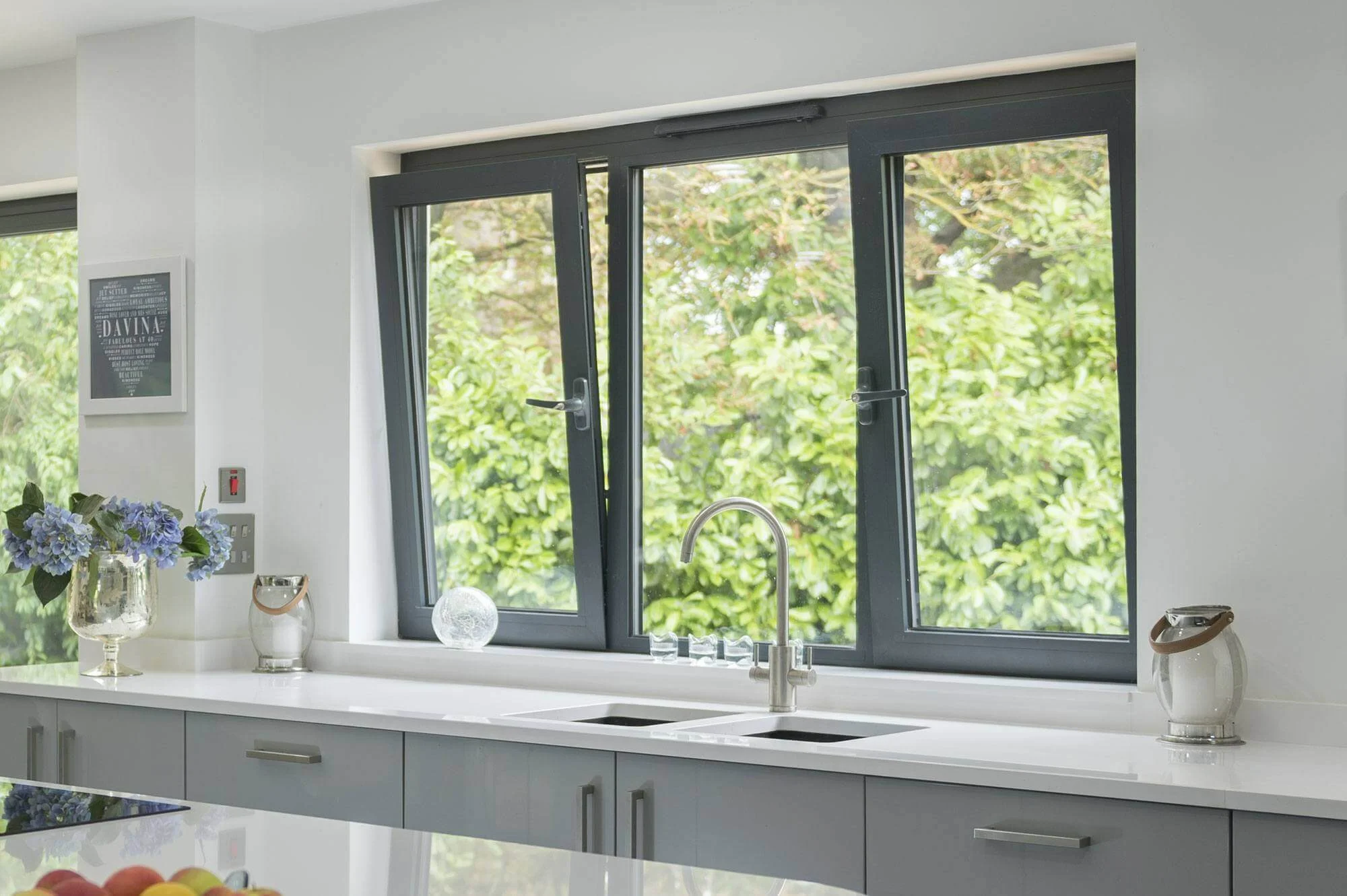
Tilt and Turn Windows
Tilt and turn windows are known for their versatility and ease of use. They can be opened in two ways.
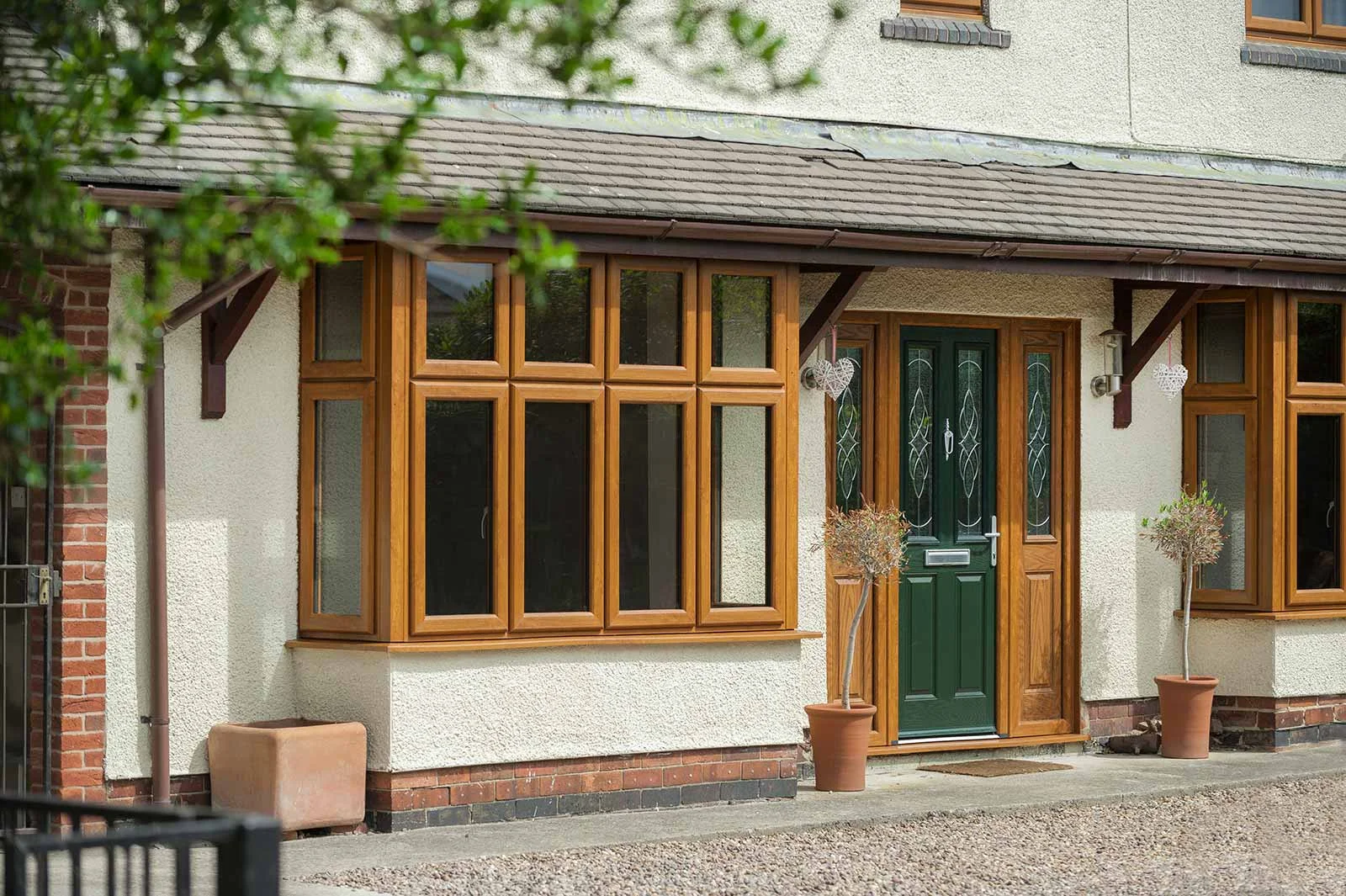
Bay and bow Windows
Bay windows are a classic architectural feature that adds elegance and charm to any home.



